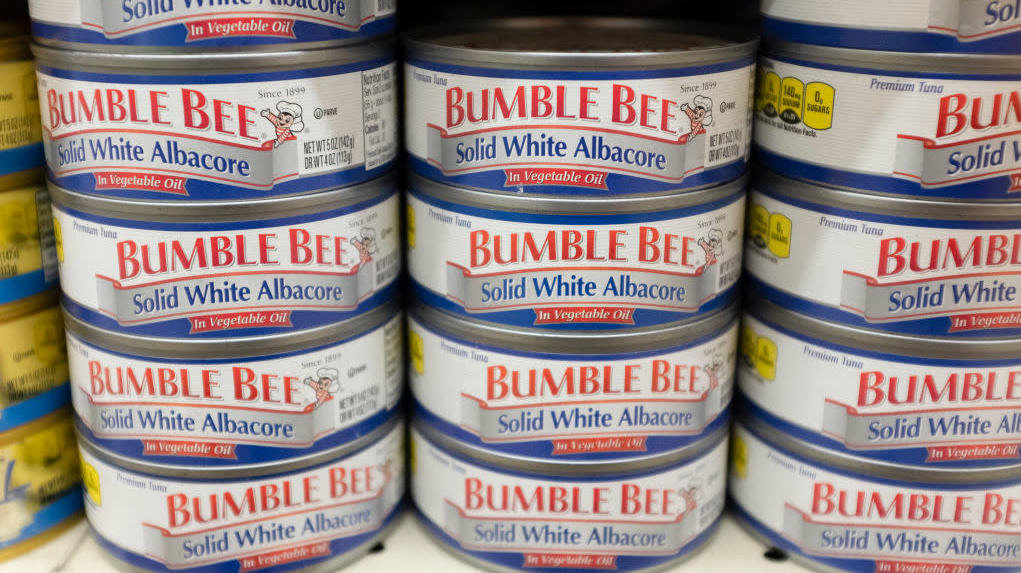You've Been Ripped Off By Canned Tuna Price-Fixing
While the pandemic has made food prices rise all over the country, you actually can't blame the 'rona for higher tuna prices—that falls on the shoulders of Christopher Lischewski, the former CEO and president of Bumble Bee Foods, who is heading to prison for price fixing.
As reported by The Counter (which references reporting from industry publication SeafoodSource), in 2016 Lischewski began coordinating with the canned tuna companies StarKist and Chicken of the Sea to reduce the weight of cans of tuna from six ounces down to five, while simultaneously artificially raising prices. The scheme was only discovered when multiple wholesalers, retailers, and food distributors caught on. In 2017 the federal government sued Bumble Bee, who pled guilty to a felony charge, and Lischewski has now been fined $100,000 and sentenced to 40 months in jail.
Multiple aspects of the situation are galling. For starters, the companies involved in this scheme basically impacted the entire U.S. canned tuna industry. And, as stated by U.S. District Court Judge Edward M. Chen, "the product in question is a basic food staple...for people who I think its fair to assume includes those who are at the lower end of the socioeconomic scale based on the pricing of this product." While it's not like it would have been more permissible if they were price fixing, say, wagyu beef, it seems particularly egregious to raise prices on such a basic commodity.
Also, the defense presented by Lischewski's attorneys was...let's say flawed. Excerpting SeafoodSource:
"Let's talk about what happened during the conspiracy," Lischewski's attorney, Elliot Peters, said. "StarKist's profitability went completely into the tank ... Bumble Bee's profitability went down in 2010, 2011, and 2013."
The lack of profitability, he said, demonstrates that price-fixing had low impact on the industry, and consumers.
Saying that your client didn't actually make any money from their criminal scheme doesn't make their scheme less criminal, and it definitely doesn't make it more permissible. SeafoodSource also says that Peters went on to argue that Lischewski was being treated unfairly as compared to other felonious CEOs, who received either no sentences or lighter sentences after committing their own crimes. As said by Peters, "How is it proportionate or fair that Mr. Lischewski get an extremely long sentence that bears no relationship to anyone else?" Let that one sink in for a moment.
